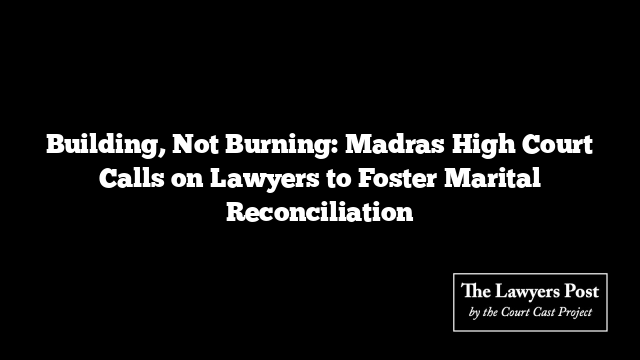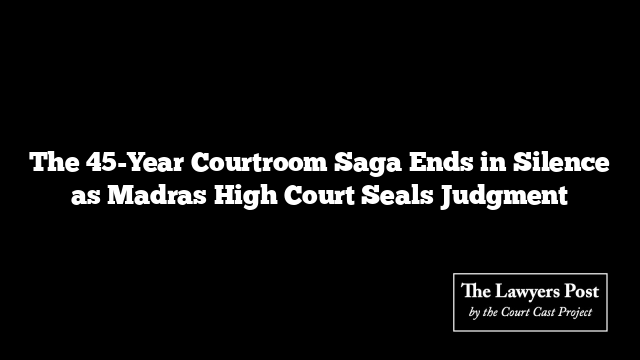In a recent and passionate stance on marital disputes, the Madras High Court urged lawyers to prioritize reconciliation and preservation in their approach to handling marriage cases. The Court voiced its concern over lawyers’ roles in exacerbating tensions, pointing out that an advocate’s responsibility should lie in bridging divides, not deepening them.
A Bench comprising Justices Bhavani Subbaroyan and KK Ramakrishnan made these observations during a marital dispute where it became evident that a lawyer’s drafting had worsened the already fraught relationship between the estranged couple. The Court emphasized that attorneys in matrimonial cases should strive to mend rather than strain relationships, advocating for sensitivity and restraint over sensationalism.
“The advocate’s role is to resolve, not to stoke conflict. Lawyers should act as builders of understanding, not destroyers of marriage,” the Court noted. The remarks reflected a call for a paradigm shift, urging the legal profession to adopt a constructive, not adversarial, approach in family matters.
The judges suggested specific conduct guidelines for lawyers, aiming to balance legal representation with ethical responsibility. The Court also recommended that the Bar Council of India (BCI) formalize these guidelines, ensuring that matrimonial disputes are handled with compassion and integrity. Highlights of the proposed guidelines include:
- Uphold ethical standards and refrain from misguiding clients.
- Encourage amicable settlements and explore counseling before proceeding with litigation.
- Avoid implicating unrelated parties in legal complaints.
- Provide clients with clear, truthful advice on potential legal consequences.
- Maintain neutrality and prioritize de-escalation between families involved.
This case arose amid appeals from a woman contesting a family court’s ruling that had granted her husband a divorce while dismissing her request to restore conjugal rights. The couple, married in 2009, had experienced mounting discord allegedly tied to property issues and familial tensions. Tragically, the situation intensified when an altercation involving the wife’s family left her father-in-law dead and other family members injured. These events reinforced the husband’s resolve to proceed with the divorce, with the family court—and subsequently, the High Court—finding little hope for reconciliation given the gravity of the incident.
Ultimately, the High Court upheld the family court’s divorce decision, observing that, under the circumstances, it would be unreasonable to expect the husband to maintain the marriage.





